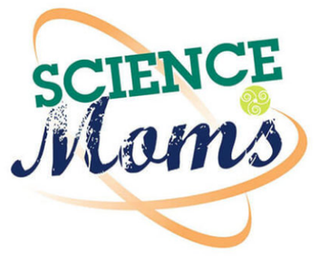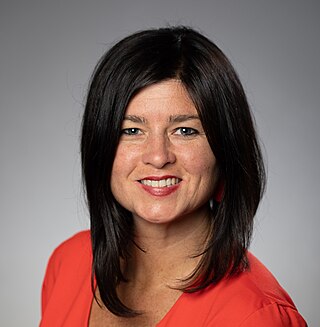
Biotechnology is a multidisciplinary field that involves the integration of natural sciences and engineering sciences in order to achieve the application of organisms, cells, parts thereof and molecular analogues for products and services.

Genetically modified maize (corn) is a genetically modified crop. Specific maize strains have been genetically engineered to express agriculturally-desirable traits, including resistance to pests and to herbicides. Maize strains with both traits are now in use in multiple countries. GM maize has also caused controversy with respect to possible health effects, impact on other insects and impact on other plants via gene flow. One strain, called Starlink, was approved only for animal feed in the US but was found in food, leading to a series of recalls starting in 2000.

Genetic engineering, also called genetic modification or genetic manipulation, is the modification and manipulation of an organism's genes using technology. It is a set of technologies used to change the genetic makeup of cells, including the transfer of genes within and across species boundaries to produce improved or novel organisms. New DNA is obtained by either isolating and copying the genetic material of interest using recombinant DNA methods or by artificially synthesising the DNA. A construct is usually created and used to insert this DNA into the host organism. The first recombinant DNA molecule was made by Paul Berg in 1972 by combining DNA from the monkey virus SV40 with the lambda virus. As well as inserting genes, the process can be used to remove, or "knock out", genes. The new DNA can be inserted randomly, or targeted to a specific part of the genome.
The Monsanto Company was an American agrochemical and agricultural biotechnology corporation founded in 1901 and headquartered in Creve Coeur, Missouri. Monsanto's best-known product is Roundup, a glyphosate-based herbicide, developed in the 1970s. Later, the company became a major producer of genetically engineered crops. In 2018, the company ranked 199th on the Fortune 500 of the largest United States corporations by revenue.
Agricultural biotechnology, also known as agritech, is an area of agricultural science involving the use of scientific tools and techniques, including genetic engineering, molecular markers, molecular diagnostics, vaccines, and tissue culture, to modify living organisms: plants, animals, and microorganisms. Crop biotechnology is one aspect of agricultural biotechnology which has been greatly developed upon in recent times. Desired trait are exported from a particular species of Crop to an entirely different species. These transgene crops possess desirable characteristics in terms of flavor, color of flowers, growth rate, size of harvested products and resistance to diseases and pests.
Flavr Savr, a genetically modified tomato, was the first commercially grown genetically engineered food to be granted a license for human consumption. It was developed by the Californian company Calgene in the 1980s. The tomato has an improved shelf-life, increased fungal resistance and a slightly increased viscosity compared to its non-modified counterpart. It was meant to be harvested ripe for increased flavor for long-distance shipping. The Flavr Savr contains two genes added by Calgene; a reversed antisense polygalacturonase gene which inhibits the production of the a rotting enzyme and a gene responsible for the creation of APH(3')II, which confers resistance to certain aminoglycoside antibiotics including kanamycin and neomycin. On May 18, 1994, the FDA completed its evaluation of the Flavr Savr tomato and the use of APH(3')II, concluding that the tomato "is as safe as tomatoes bred by conventional means" and "that the use of aminoglycoside 3'-phosphotransferase II is safe for use as a processing aid in the development of new varieties of tomato, rapeseed oil, and cotton intended for food use." It was first sold in 1994, and was only available for a few years before production ceased in 1997. Calgene made history, but mounting costs prevented the company from becoming profitable, and it was eventually acquired by Monsanto Company.

Genetically modified crops are plants used in agriculture, the DNA of which has been modified using genetic engineering methods. Plant genomes can be engineered by physical methods or by use of Agrobacterium for the delivery of sequences hosted in T-DNA binary vectors. In most cases, the aim is to introduce a new trait to the plant which does not occur naturally in the species. Examples in food crops include resistance to certain pests, diseases, environmental conditions, reduction of spoilage, resistance to chemical treatments, or improving the nutrient profile of the crop. Examples in non-food crops include production of pharmaceutical agents, biofuels, and other industrially useful goods, as well as for bioremediation.
Since the advent of genetic engineering in the 1970s, concerns have been raised about the dangers of the technology. Laws, regulations, and treaties were created in the years following to contain genetically modified organisms and prevent their escape. Nevertheless, there are several examples of failure to keep GM crops separate from conventional ones.

Genetically modified food controversies are disputes over the use of foods and other goods derived from genetically modified crops instead of conventional crops, and other uses of genetic engineering in food production. The disputes involve consumers, farmers, biotechnology companies, governmental regulators, non-governmental organizations, and scientists. The key areas of controversy related to genetically modified food are whether such food should be labeled, the role of government regulators, the objectivity of scientific research and publication, the effect of genetically modified crops on health and the environment, the effect on pesticide resistance, the impact of such crops for farmers, and the role of the crops in feeding the world population. In addition, products derived from GMO organisms play a role in the production of ethanol fuels and pharmaceuticals.

Plant genetics is the study of genes, genetic variation, and heredity specifically in plants. It is generally considered a field of biology and botany, but intersects frequently with many other life sciences and is strongly linked with the study of information systems. Plant genetics is similar in many ways to animal genetics but differs in a few key areas.
Genetically modified wheat is wheat that has been genetically engineered by the direct manipulation of its genome using biotechnology. As of 2020, no GM wheat is grown commercially, although many field tests have been conducted, with one wheat variety, Bioceres HB4 Wheat, obtaining regulatory approval from the Argentinean government.

A genetically modified soybean is a soybean that has had DNA introduced into it using genetic engineering techniques. In 1996, the first genetically modified soybean was introduced to the U.S. by Monsanto. In 2014, 90.7 million hectares of GM soybeans were planted worldwide, this is almost 82% of the total soybeans cultivation area.

The regulation of genetic engineering varies widely by country. Countries such as the United States, Canada, Lebanon and Egypt use substantial equivalence as the starting point when assessing safety, while many countries such as those in the European Union, Brazil and China authorize GMO cultivation on a case-by-case basis. Many countries allow the import of GM food with authorization, but either do not allow its cultivation or have provisions for cultivation, but no GM products are yet produced. Most countries that do not allow for GMO cultivation do permit research. Most (85%) of the world's GMO crops are grown in the Americas. One of the key issues concerning regulators is whether GM products should be labeled. Labeling of GMO products in the marketplace is required in 64 countries. Labeling can be mandatory up to a threshold GM content level or voluntary. A study investigating voluntary labeling in South Africa found that 31% of products labeled as GMO-free had a GM content above 1.0%. In Canada and the USA labeling of GM food is voluntary, while in Europe all food or feed which contains greater than 0.9% of approved GMOs must be labelled.
Genetic engineering in the European Union has varying degrees of regulation.
GMO Answers is a front group launched by the agricultural biotechnology industry in July 2013 to participate in public debate around genetically modified organisms (GMOs) in crops in the U.S. food supply.

A genetically modified potato is a potato that has had its genes modified, using genetic engineering. Goals of modification include introducing pest resistance, tweaking the amounts of certain chemicals produced by the plant, and to prevent browning or bruising of the tubers. Varieties modified to produce large amounts of starches may be approved for industrial use only, not for food.

GMO conspiracy theories are conspiracy theories related to the production and sale of genetically modified crops and genetically modified food. These conspiracy theories include claims that agribusinesses, especially Monsanto, have suppressed data showing that GMOs cause harm, deliberately cause food shortages to promote the use of GM food, or have co-opted government agencies such as the United States Food and Drug Administration or scientific societies such as the American Association for the Advancement of Science.

Alison L. Van Eenennaam is a Cooperative Extension Specialist in the Department of Animal Science at the University of California, Davis and runs the Animal Genomics and Biotechnology Laboratory. She has served on national committees such as the USDA National Advisory Committee on Biotechnology in the 21st Century (AC21) and was awarded the 2014 Borlaug CAST Communication Award. Van Eenennaam writes the Biobeef Blog.

Science Moms is a 2017 American documentary film about mothers who advocate for science-based decision-making concerning the health and nutrition of children. The film covers vaccines, autism, celebrity-endorsed health fads, cancer, allergies, organic food, GMOs, homeopathy, and the appeal to nature fallacy.

Sarah Davidson Evanega is an American researcher who works in plant sciences, a public policy influencer and a science communicator, especially relating to agricultural biotechnology. She is a professor at the Boyce Thompson Institute for Plant Research (BTI), and an adjunct professor in the School of Integrative Plant Sciences, Cornell University. She is the director of the Alliance for Science and was awarded the 2021 Borlaug CAST Communication Award.








